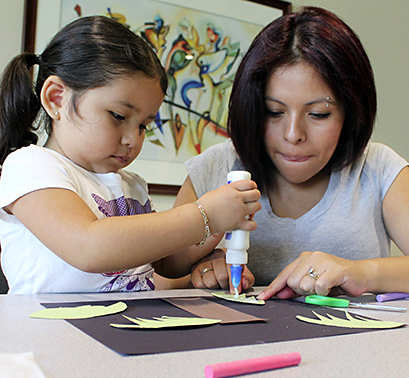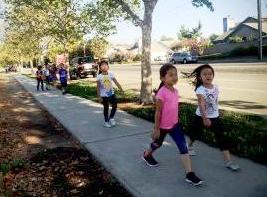The California Department of Education has named 13 educators, including
 a representative of early childhood education, to a planning team tasked with developing social and emotional learning guidelines for schools across the state, a sign of the growing
a representative of early childhood education, to a planning team tasked with developing social and emotional learning guidelines for schools across the state, a sign of the growing interest in teaching students the interpersonal skills that contribute to later success in college and work.
The team seeks to help schools integrate social and emotional learning into daily classroom teaching, rather than presenting the concepts in an "add-on" unit that teachers are supposed to insert into their schedules.
The California Preschool Curriculum Framework, which contains a section on social-emotional development, will serve as a reference point for the team's work. "I believe that if a teacher's strategy is built on a foundation of social and emotional understanding, it makes everything else easier," said Janet Thompson, school director of the Early Childhood Lab at UC Davis and one of the authors of the framework. Read more.
|
|
Peaceful and quiet: not the first words that spring to mind when thinking about a room with lots of young children in it.
But according to research published in Child Development, parents and teachers should pay attention to the amount of background noise at home and at school -- it can hinder young children's ability to learn new words. In the study, toddlers were taught the names of unfamiliar objects while they were in settings with differing amounts of background speech. When the toddlers were later tested on their ability to remember the words, those who had been in quieter settings were much more likely to successfully recall the words.
Sounds from TV, radio, and people talking can "affect how children learn words at early ages," according
to
the study's lead author Brianna McMillan.
"Our study suggests that adults should be aware of the amount of background speech in the environment when they're interacting with young children
."
Read more about the study at Science Daily.
|
A Yale study of implicit racial bias among preschool teachers suggests that teachers are more likely to watch for and expect problem behavior from African-American boys.
Teachers were also found to hold students of their own race to a higher standard of behavior than students of other races. Read more.
|
 Head Start standards got a significant overhaul this month, including a reduction in red tape and an increase in the number of program hours children can receive through the program.
Head Start standards got a significant overhaul this month, including a reduction in red tape and an increase in the number of program hours children can receive through the program.
The changes apply to Head Start, which serves 3- and 4-year-olds and their families, and Early Head Start, serving children ages 0 to 3 and their families. There are 140 Head Start and Early Head Start programs in California. The budget for the statewide program, which enrolls 108,421 children, was $985 million in 2015-16.
"It's huge," Christopher Maricle, executive director of the
California Head Start Association
, said of the changes. "These standards drive program operations in every Head Start grantee we have." Read more.
|
A school district where well-being is a top priority
 The K-6 Robla School District on the outskirts of Sacramento, which serves mostly low-income Latino and Asian students, is using funds from the Local Control Funding Formula to promote health and fitness from the youngest students on up. The K-6 Robla School District on the outskirts of Sacramento, which serves mostly low-income Latino and Asian students, is using funds from the Local Control Funding Formula to promote health and fitness from the youngest students on up.
District leaders want to revolutionize the way its 2,200 students, their families, teachers and staff eat, exercise and relax. As part of this effort,
the district hired five new physical education teachers this year -- one for each school in the district. But that was only the beginning.
The district also hired a certified yoga instructor as a full-time coordinator of
school climate. Three days a week, the coordinator holds 30-minute yoga classes after school with as many as a dozen staff members. In addition, kindergarten teachers are being trained in how to teach yoga to students, and starting in first grade, students walk or run to a local park each morning.
Read about additional features of the program, including the ways in which parents are getting involved,
here.
|
The average annual cost of full-time, center-based child care in the United States now exceeds the average annual cost of in-state college tuition, according to a "Care Index" from think tank New America. That amount, of $9,589 per child, represents nearly a fifth of annual median household income and 85 percent of the yearly median cost of rent. Read more here.
Alfie Kohn: Are kids "being underestimated - or overestimated?"
Writing in
Huffington Post, child development expert and author Alfie Kohn compares what he calls "old school" punishment/reward approaches to school discipline with using a developmental approach. He suggests working with kids in a way that doesn't overestimate their capabilities, rather than expecting perfect obedience. His guiding assumption: "No child is too young to be treated with respect." Read more
here.
|
CHECK OUT OUR RECENT ISSUES
|
|
|
|
|